Explore the Best AI Image Gallery
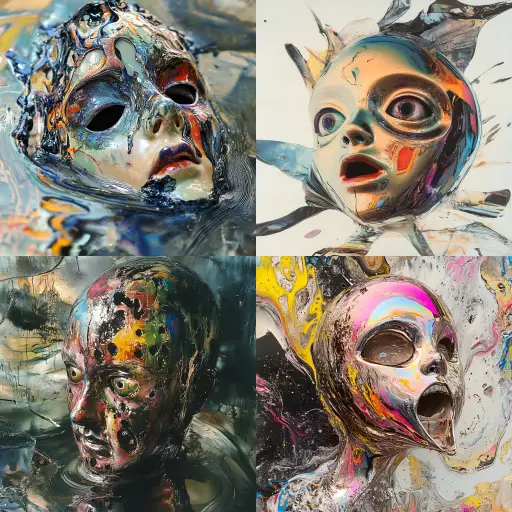
Quantum Creativity: Where Computing Meets Artistic Expression
The realm of creativity is poised for a monumental shift, driven by the burgeoning field of quantum computing. This revolutionary technology, with its ability to process information at an unprecedented scale, promises to redefine artistic expression, empower new forms of creative collaboration, and unlock unimaginable possibilities in design, music, and storytelling.
Quantum Leap in Artistic Expression
Imagine generating mesmerizing visuals based on your emotions, composing symphonies guided by complex algorithms, or sculpting 3D models with intuitive thought control. Quantum computing empowers artists to transcend traditional limitations, unlocking new dimensions of creative exploration.
Unlocking the Potential: Applications Across Creative Fields
- Visual Arts: Quantum algorithms can analyze vast datasets of art history, styles, and techniques to generate novel compositions, personalized artwork, and interactive installations that respond to viewer input.
- Music Composition: Quantum computers can compose intricate melodies, harmonies, and rhythms based on specific emotional themes or cultural influences, pushing the boundaries of musical innovation.
- Film and Storytelling: Imagine generating realistic CGI characters with lifelike emotions, crafting immersive narratives that adapt to viewer choices, and visualizing complex scientific concepts through captivating quantum-powered animations.
Quantum Collaboration: A New Era of Creative Teamwork
Beyond individual artistic expression, quantum computing fosters unprecedented collaboration. Artists, designers, musicians, and programmers can connect in virtual spaces, share ideas instantly, and co-create innovative projects powered by shared quantum resources.
Bridging the Gap: Democratizing Access to Quantum Creativity
While quantum computing remains a complex field, its accessibility is rapidly evolving. Cloud-based platforms and user-friendly tools are emerging, empowering creators of all backgrounds to explore quantum possibilities without needing deep technical expertise.
Ethical Considerations: Navigating the Uncharted Waters
As with any powerful technology, quantum computing raises ethical considerations that must be carefully addressed.
- AI-Generated Art and Authorship: Who owns the copyright to artwork created by quantum algorithms? How do we define the role of human creativity in AI-assisted art?
- Bias in Algorithms: Quantum algorithms are trained on data, which can reflect existing societal biases. Its crucial to ensure that these algorithms promote inclusivity and avoid perpetuating harmful stereotypes.
- Accessibility and Equity: Access to quantum computing resources should be equitable, ensuring that the benefits of this technology reach diverse communities and individuals worldwide.
Future Trends: The Quantum Frontier of Creativity
The future of quantum creativity is brimming with possibilities.
- Enhanced Sensory Experiences: Quantum-powered technologies could create immersive art installations that engage multiple senses, blurring the lines between reality and imagination.
- Personalized Artistic Creations: Imagine generating bespoke artwork, music, or design concepts tailored to your unique preferences and experiences.
- Quantum Storytelling: Immersive narratives driven by quantum algorithms could offer dynamic and interactive storytelling experiences that evolve based on viewer choices.
As we venture deeper into the quantum realm, one thing is certain: the intersection of computing and creativity will continue to reshape our world, inspiring innovation, fostering collaboration, and expanding the very definition of art itself.


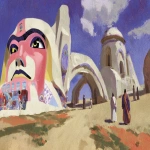

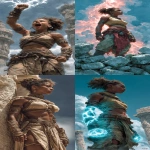
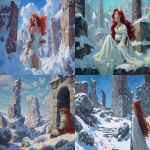

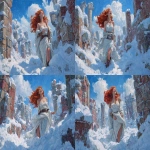
](https://images.ai-img.art/thumbnails/150/39c6bd41a1282b304a06fb11053bd009750b3879060719b1adb959228dbcd41a.webp)


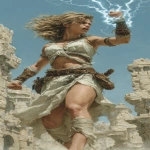
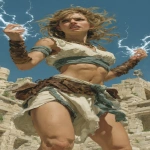

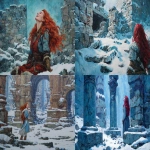

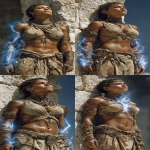


](https://images.ai-img.art/thumbnails/150/bc5b40f43007c984885fc5b035e0fd81d75554a8730895e067565a6b7050524b.webp)









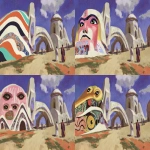

](https://images.ai-img.art/thumbnails/150/8aa2589b60ffe3dde30a265a6cac8d4ae71901c658ca48c4344f21436de413fb.webp)
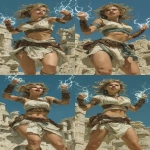
](https://images.ai-img.art/thumbnails/150/33a7122c923d87ba243a3afa0b16a930f1603be27b8ac938ff7f4ae4f5140553.webp)
